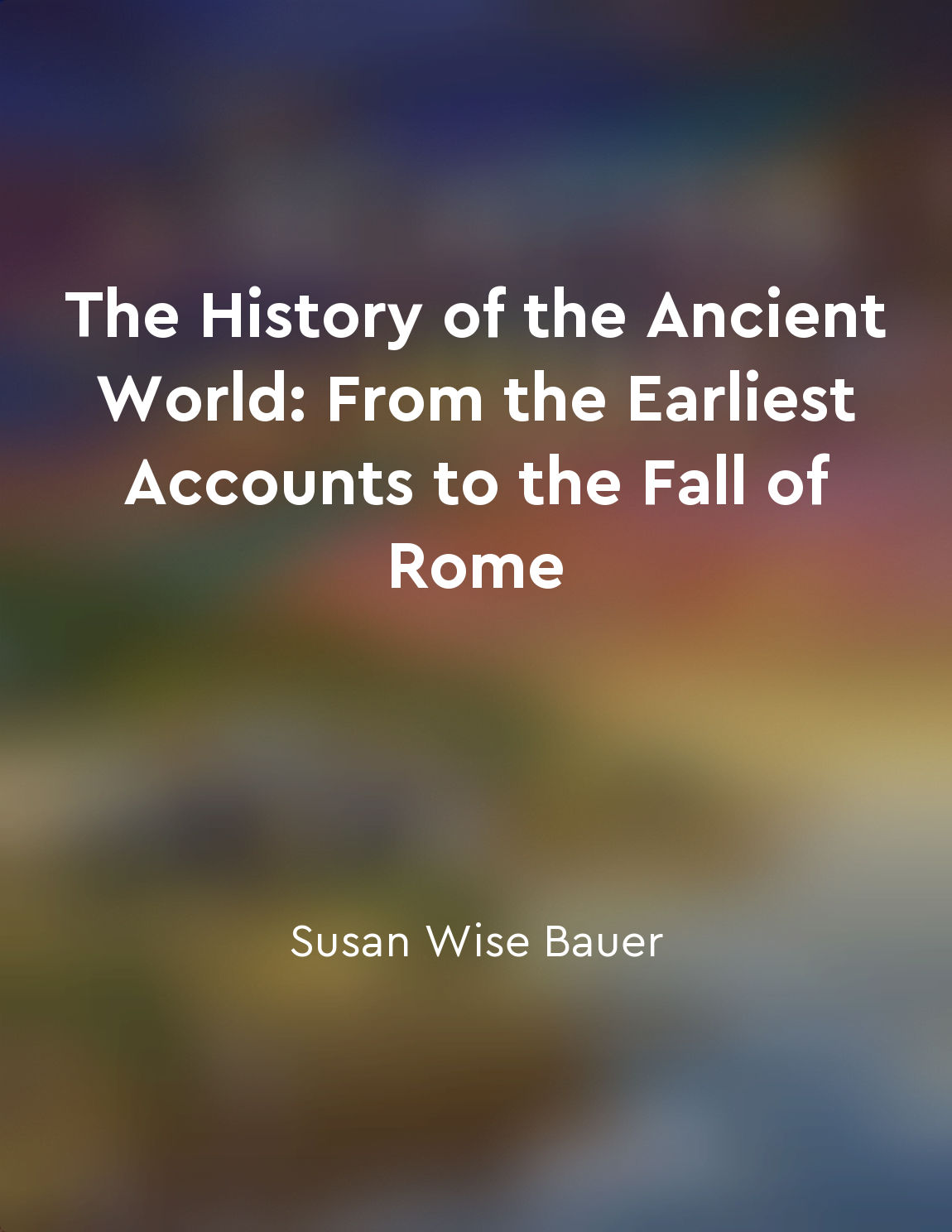The decline of civic responsibility eroded the fabric of Roman society from "summary" of The Decline and Fall of the Roman Empire by Edward Gibbon
The fabric of Roman society began to unravel as civic responsibility declined over time. In the early days of the empire, citizens took pride in contributing to the well-being of their community. They understood the importance of fulfilling their duties and obligations to ensure the smooth functioning of society. However, as the empire grew larger and more complex, this sense of civic duty began to wane. One of the main reasons for this decline was the increasing wealth and luxury enjoyed by the upper classes. As individuals became more focused on their own personal pleasures and interests, they began to neglect their responsibilities to the greater good. This lack of commitment to the common welfare weakened the social bonds that held Roman society together. Furthermore, the rise of authoritarian rule also played a role in undermining civic responsibility. As emperors consolidated power and centralized control, they eroded the traditional systems of local governance that had once relied on the active participation of citizens. Without opportunities for meaningful engagement in decision-making processes, people became disconnected from the affairs of their communities. Another factor contributing to the erosion of civic responsibility was the influx of foreign cultures and beliefs into Roman society. As the empire expanded and came into contact with diverse peoples, the sense of shared identity and purpose that had united citizens began to fade. People became more focused on their individual identities and affiliations, rather than on their responsibilities as members of a larger community.- The decline of civic responsibility had far-reaching consequences for Roman society. It weakened the social cohesion that had sustained the empire for centuries, leaving it vulnerable to internal discord and external threats. Without a strong sense of shared purpose and commitment to the common good, the fabric of Roman society began to fray, setting the stage for its eventual collapse.
Similar Posts
Cleopatra's alliance with Mark Antony
Cleopatra, the Queen of Egypt, sought to strengthen her position by forming an alliance with Mark Antony, one of the most power...
Malthusian trap and overpopulation
The Malthusian trap is a concept that has long haunted human societies. It posits a grim reality: when a population grows too l...
Political corruption and instability
The Roman Empire was plagued by a deep-rooted and pervasive issue of corruption within its political system. This corruption ex...
Friendship is an important aspect of politics
In the realm of politics, friendship holds a significant place as it plays a crucial role in the functioning of a state. Friend...

Analyze the challenges faced by postRoman European societies
After the fall of the Roman Empire in the fifth century, European societies faced a myriad of challenges as they tried to navig...

